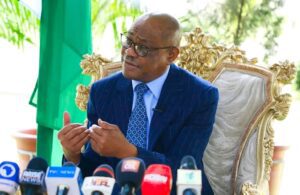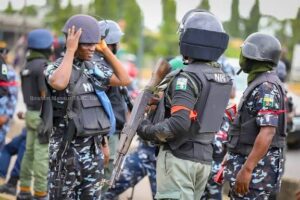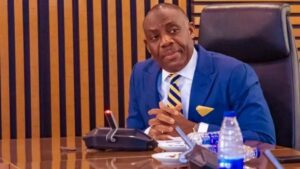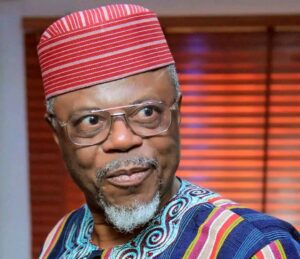No borrowing: Lagos targets increased IGR to fund 2025 budget
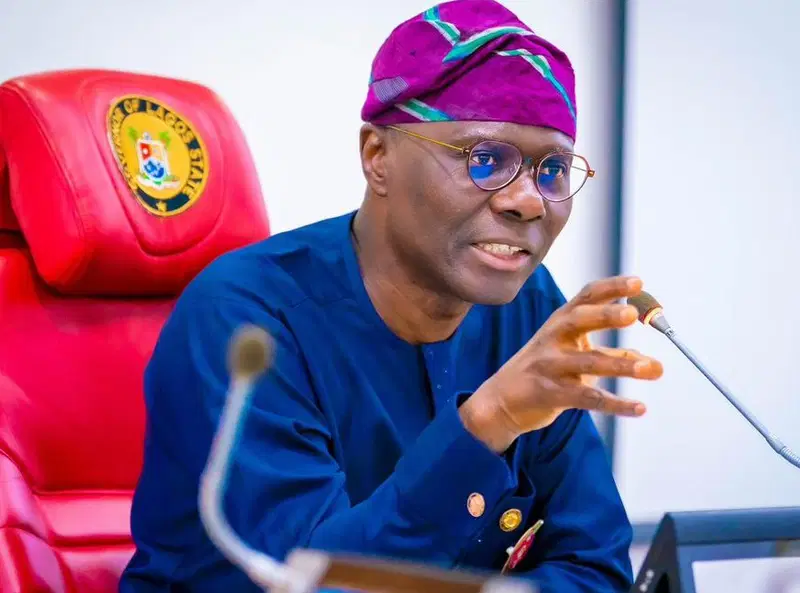
Lagos State Government has expressed confidence that it may not borrow but boost Internally Generated Revenue, IGR, to finance its ambitious ₦3.367trillion budget for 2025.
The state’s Commissioner for Economic Planning and Budget, Mr. Ope George and his counterpart, Commissioner for Finance, Abayomi Oluyomi, stated this at a press briefing to analyze the year 2025 budget, held at the Press Center, Alausa Ikeja.
The duo stressed that the state government has implemented strategic plans to generate more revenue to cover its budget deficit.
Here is a breakdown of the N3.366 trillion of the 2025 budget, which, according to the Commissioner, would be funded from a total revenue estimate of N2.968 trillion, comprising Internally Generated Revenue (IGR): N2.230 trillion, Capital Receipts: N111.839 billion and Federal Transfer: N626.137 billion.
The target revenue of N2.968 trillion represents a monthly revenue target of M247.331 billion.
George explained that the Lagos Internal Revenue Service, LIRS, is expected to contribute 63 percent (N1.4 Trillion) of the projected IGR, while other Government Ministries, Departments, Agencies, and MDAs will generate about 37 percent (N830.177 billion).
According to him, the target would be achieved by deepening revenue and increasing the tax net by deploying technology, economic intelligence, data gathering and analysis, among other initiatives.
“We believe huge revenue-generating opportunities exist in the informal sector, tourism, real estate, transportation, and trade.
“The deficit of ₦398.662bn is projected to be funded by Internal, External Loans, Bond Issuance and others,” George stated.
According to the Commissioner, the deficit funding Sources Provided are External Loans, N28.751 billion; Internal Loans, N203.831 Billion; Bond Issuance, N150.000 billion; and others, N16.080 billion.
A total expenditure of ₦3.367 trillion is budgeted for 2025, broken down as follows: Recurrent Expenditure N1.296trillion, Capital Expenditure N2.071trillion Capital to Recurrent ratio N62:38 billion.
The Recurring Expenditure component is as follows: Total Personnel Costs, N401.120 billion; total overhead costs, N799.511 billion; and debt charges, M95.000 billion.
The Recurrent Expenditures accounted for 38 percent of the total budget, with the Personnel Cost at N401.120 billion representing 12 percent of the total Recurrent Expenditures.
The Personnel Cost in Y2025 increased by N146.003 billion compared to Y2024. “ The increase is a reflection on the State’s commitment to implement the salary increment to cushion the effect of high inflation and the removal of fuel subsidy,” he stated.
On the other hand, Capital Expenditure accounts for 62 percent of the total budget size. “This demonstrates the administration’s commitment to massive infrastructure renewal and development as well as completion of ongoing projects,” George stated.
The Sectoral allocations are as follows: General Public Services N398,368,579,418, Public Order and Safety N91,472,518,204, Economic Affairs N162,467,077,787 Environment N 75,842,862,616, Housing and Community Amenities N26,000,691,418, Health N173,847,292,450, Recreation, Culture and Religion N37,782,405,139, Education N166,310,716,148, and Social Protection N32,805,054,933.
Highlights on Infrastructure Development across five divisions include the following: Construction of Samuel Ekundayo /Toga Road, Badagry; construction of Abaranje Road, Alimosho; construction of Adamo-Akanun-Agunfoye Lugbusi Roads, Ikorodu; construction/Rehabilitation of Roads in Ikeja GRA (Oba Dosunmu Road, Sasegbon Street, Sobo Arobiodu Street e.t.c
Others include the rehabilitation/Upgrading of the Lekki-Epe Expressway: Phase IIA (18.600 km); completion of the Abule Egba and Ajah Bus Terminals; construction of Iyana-Ipaja Bus Terminals; construction of the Opebi Link bridge to Maryland that will significantly improve travel time and alternative route options the axis; rehabilitation/Upgrading of Eti-Osa Lekki-Epe Expressway Project from Eleko T-Junction–Abraham Adesanya. ( Phase II); construction of Lekki-Epe Airport Road and construction of Omu Creek Road.
Urban renewal/technical studies on 4th Mainland Bridge; construction of Lagos Badagry Expressway; dualization of Ojo Road/Baale Adeyemi, Ojo; construction of Lekki/Epe(Orisa) Bridge and approach road and construction of second phase of Lagos Rail Mass Transit System (LRMT) from mile 2 to Okokomaiko.
‘’In addition, the development of the 68km Green Line rail from Marina to the Lekki Free Trade Zone. Completion of 13 new jetties across the state and the upgrade works ongoing at existing jetties.
‘’Completion of the Stadia in Ikorodu, Badagry, Epe, Ifako-Ijaye, Ketu, Ibeju-Lekki, Sari Iganmu and Ajeromi to facilitate youth development and community sports and construction of National Youths Service Corps, NYSC Camp (Permanent Site).
‘’Provision of Housing Units across IBILE to transform lives and build a resilient and thriving State. (Completion of 444 units of building Projects at Sangotedo Phase II, 420 units of building Projects at Ajara-Badagry, And 136 units of building Projects at Ibeshe II and Epe. Construction of Egan Phase II and III, among others.),” he stated.
George stressed that “The ‘Budget of Sustainability’ is not just a fiscal document; it’s structured around providing economic stability, environmental stewardship and social equity to ensure that Lagos continues to thrive sustainably for future generations.
“The Y2025 Budget emphasizes five key pillars: infrastructure and environmental sustainability, Economic diversification, Social inclusion and Human Capital Development, Governance and institutional reforms.”


